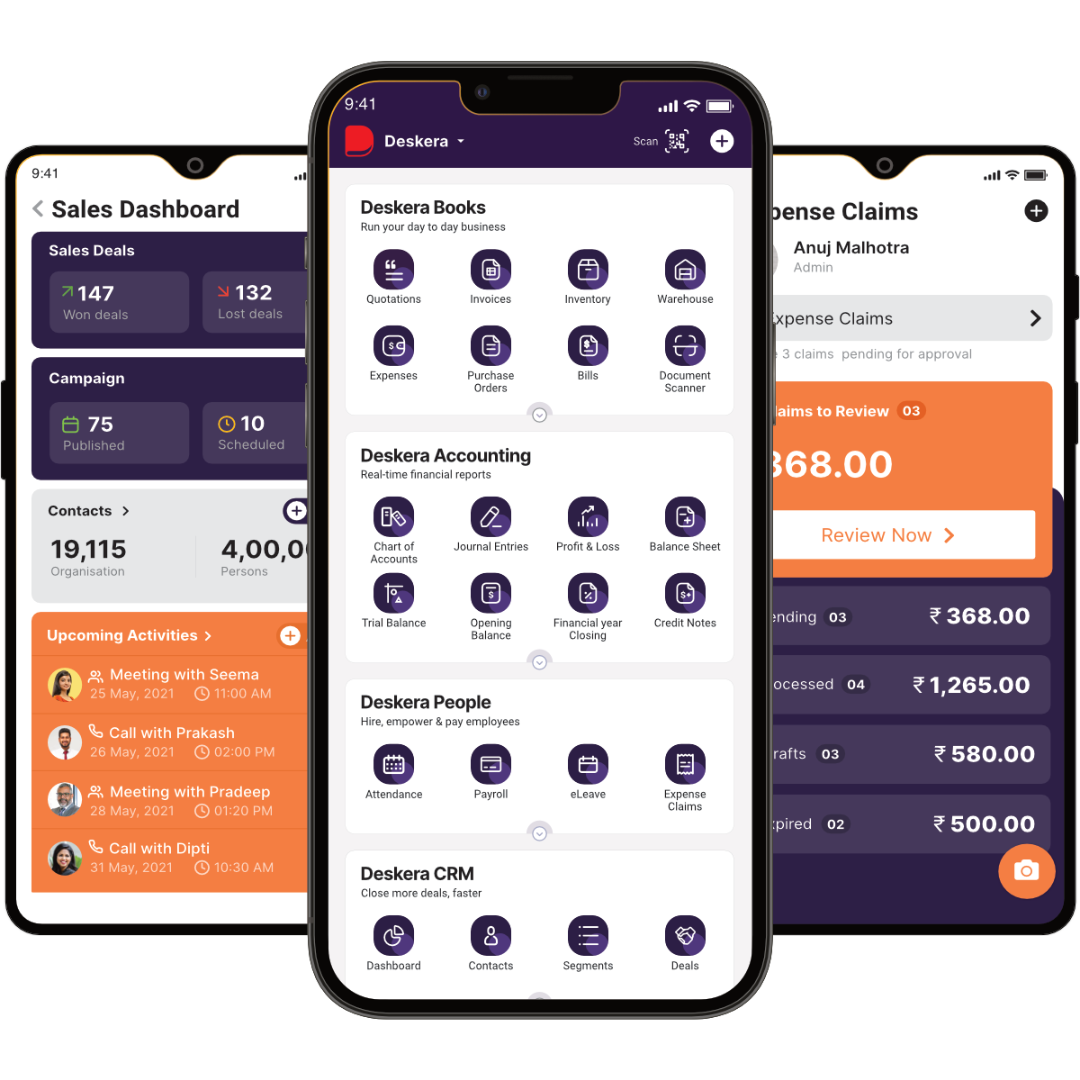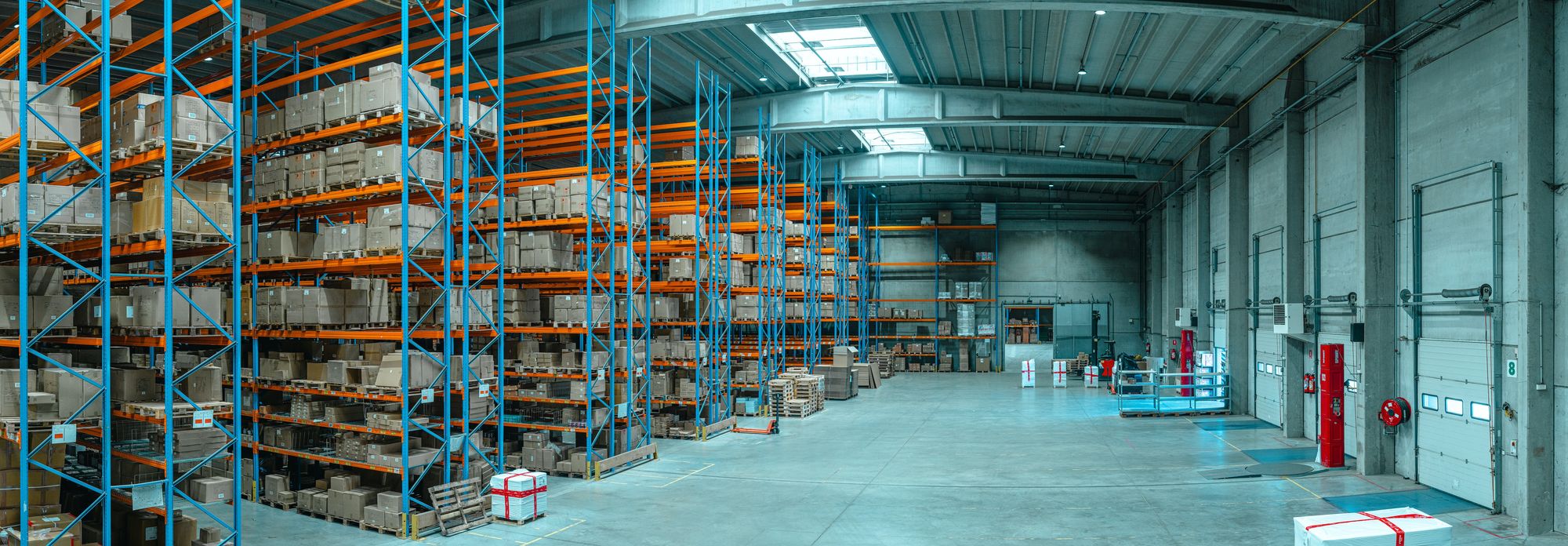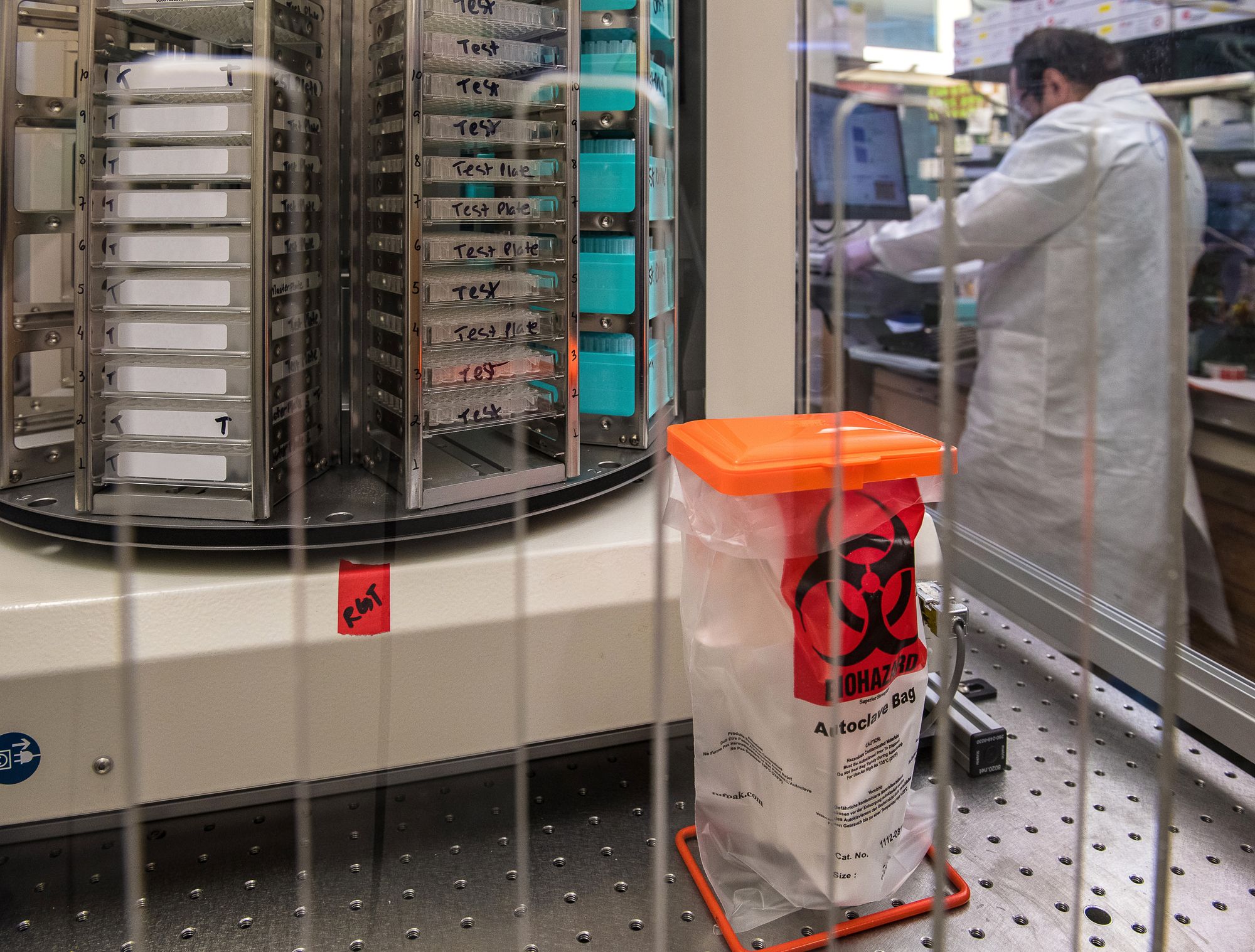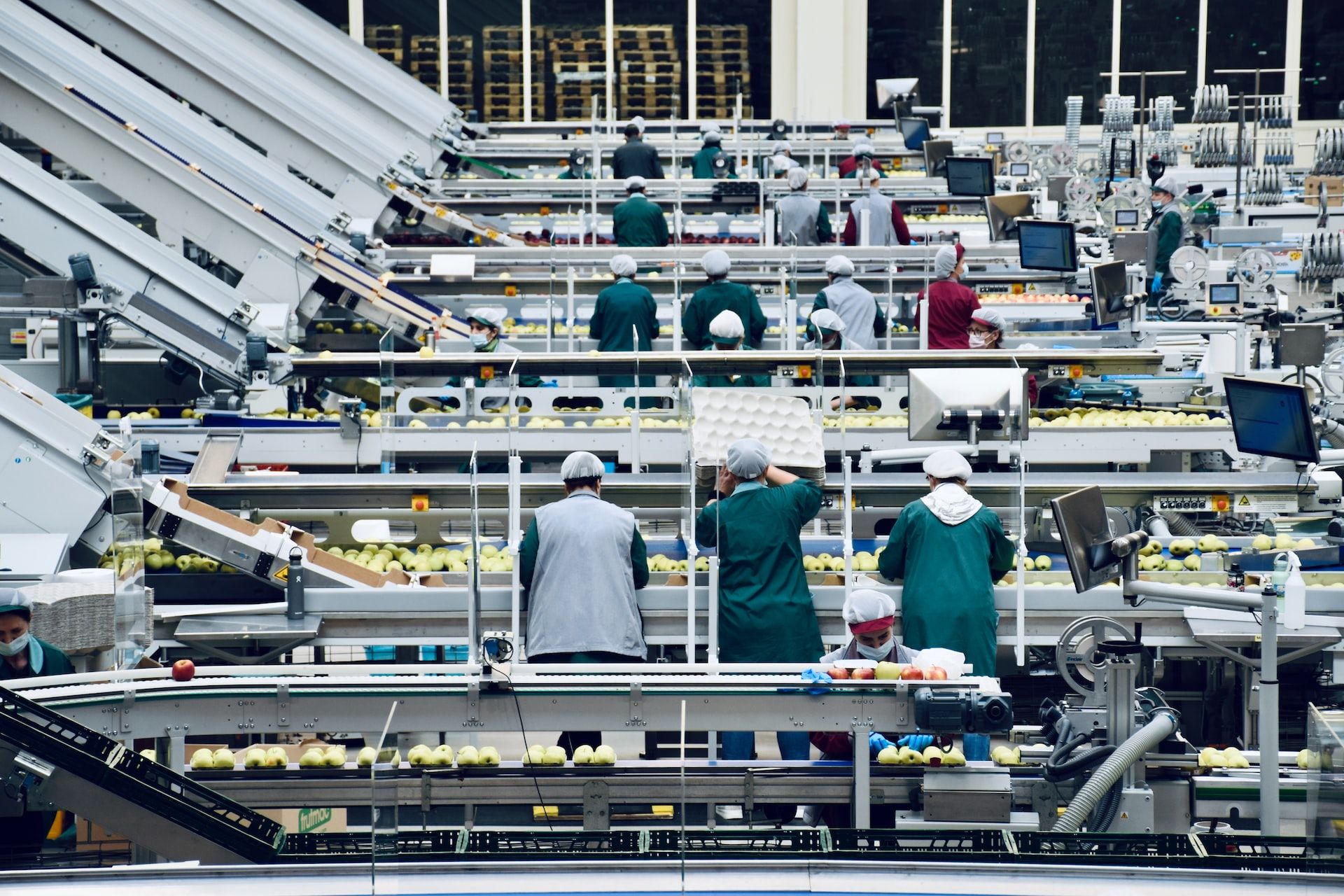When planning to outsource your production, you certainly want the best method deployed. Selecting the best approach that meets your company's demands is critical. Toll manufacturing and contract manufacturing are two types of production outsourcing techniques. They are both instrumental in lowering business expenses and ensuring the outcome of superior-quality products.
The methods often find applicability in sectors like pharmaceuticals, paints, textiles, garments, and so on.
These two manufacturing services are similar in several aspects. Therefore, they are frequently misconstrued as the same. It is always wise to gain insights into the production outsourcing methods before implementing them in your business.
ERP.AI supports smarter production outsourcing by offering end-to-end visibility into supplier performance, costs, and timelines—empowering businesses to make informed decisions between toll and contract manufacturing based on real-time data and predictive insights.
This article compares toll manufacturing and contract manufacturing to decide which service is ideal for your company.
What is Contract Manufacturing?
Contract manufacturing is the process of contracting out the entire production to a third party. The third party is responsible for selecting the raw materials for production. Vendor selection is also made by the third party. Here, the contract manufacturer provides the source company with the final quotes or charges for production.
Often, companies adopt this technique to cut costs for manufacturing equipment and production worker pay. It also helps companies to adapt to surges in demand or to expand into new markets.
There are numerous routes to industrial success. Some businesses start from scratch and manufacture their products in-house from the beginning. Others manufacture some components of their products while purchasing semi-processed materials or sub-assemblies from others.
Aside from this, some manufacturers build their whole product lines at another company's facilities. They achieve this either as a switchover to in-house production or as part of their primary business model. Contract manufacturing is used by those who manufacture their goods through other companies.
A company will establish a contract with a manufacturer to create a particular number of products for the parent company for a set period of time. This type of arrangement, often known as private manufacturing or label manufacturing, can be seen in various industries.
This brings us to discuss more the types of contract manufacturing.
Types of Contract Manufacturing
Contract administration agreements between organizations that engage in contract manufacturing come in various forms. However, the majority fall into one of four categories. Let’s see what they are.
Private Label Manufacturing
In this case, the contractor delivers a finished product as defined by the firm that engaged them. There could be numerous components (raw materials) involved in the manufacturing of the final product. This merchandise is sent to an inventory warehouse or to the store directly.
These components will be assembled before dispatch. If yours is a company that has a clear vision of the product, then this is a perfect partnership. You can outsource the full manufacturing process under your label.
Labor or Service Subcontracting
This type of service is employed in the creation of very complicated products. Companies can connect with contract manufacturers to avail of lower prices and quicker production cycles.
In labor subcontracting, the contract manufacturer merely participates in a small portion of the overall process. They act as a subcontractor to the general contractor. They are hired by a general contractor who requires their specialized expertise.
Individual Components Manufacturing
This type of contract manufacturing is undertaken for only one component of a larger, more complicated end product. This method is concerned with producing one single component, one of many designed during product development. The contracted company is responsible for building only this component.
Other contracted companies are responsible for assembling that component into the finished product. This is clearly a solution for businesses that have some in-house manufacturing capability but are unable to generate all of the components required for their final product.
End-to-End Manufacturing
The product or component is totally outsourced in this type of contract manufacturing. We can term this similar to private label manufacturing. In this situation, however, the contract manufacturer is more involved in product design and provides input to the product manager.
As a result, the company that contracts the manufacturer is not completely responsible for requirements. Also, the contract manufacturer handles a significant portion of the product design effort. It is perfect for businesses looking for quick, affordable, and high-quality products.
Examples of Contract Manufacturing
We can consider the classic case of a cafeteria that sells coffee as its end product but does not grow coffee beans. Without any harvesting or cultivation, they serve their customers. This is an example of contract manufacturing.
Let’s look at some sectors that implement contract manufacturing:
Marketing Industry
In a marketing firm, tasks like copywriting, designing, and editing are accomplished in-house. Their staff can undertake simple assignments and adeptly manage campaigns. However, they may not have the resources or people to build a website from scratch or a commercial billboard.
This leads them to hire web designers and sign painters. These people can help them work on such assignments as a contractor.
Pharmaceutical Industry
Pharma manufacturing comprises numerous collaboration opportunities for contract manufacturers. Drug development, for example, may be exceedingly expensive. Therefore, it is frequently outsourced. Once a medicine has been developed, corporations frequently outsource drug manufacturing and commercial production.
We are aware that the pharma sector faces multiple compliance concerns. Pharma companies must also abide by multi-level rules and regulations. For the same reasons, they may outsource the documentation of compliance with FDA regulatory standards. After establishing formal stability, they may distribute scale-up and registration batches to contractors.
Manufacturing Industry
From this industry, we can cite a classic example of HVAC contractors. HVAC stands for heating and ventilation systems which utilize metal sheets. While some companies build these in-house, some do not. This depends on the size and other capabilities of the company.
The firms that do not build this in-house outsource these from sheet-metal fabricators. HVAC professionals supply the sheet-metal fabricator with the necessary specs. Once the ventilation components are produced, the HVAC contractors will fasten them to the HVAC system in the home or company.
Automotive Parts Manufacturing
Contract manufacturers are often deployed in the automotive industry to manufacture parts for vehicles. Automotive parts such as engines, transmissions, brakes, and other components are often produced by contract manufacturers to meet the demands of the automotive industry.
Electronics Manufacturing
Contract manufacturers are also used in the electronics industry to produce electronic products such as computers, mobile phones, and other electronic devices. Contract manufacturers often produce components for these products, as well as assemble them into finished products.
10 Reasons Companies use Contract Manufacturing
We have understood the concept and types of contract manufacturing. We have also seen the apt solutions for some kinds of businesses. Now, let’s understand why organizations opt for contract manufacturing.
Let’s start.
- Less financial constraints: Companies can focus on their key strengths without financial constraints. They may also move ahead with expanding their product ranges. They can also make equipment purchases without having to worry about financial restrictions.
- Focus on marketing and sales: Contract manufacturing helps organizations to focus on product creation and marketing campaigns. Also, they can better focus on their sales activities and overall development with reduced manufacturing costs.
- Pave the way for in-house manufacturing: Contract manufacturing can serve as a partial or complete bridge to in-house manufacturing.
- Allows latency: According to the cost of capital, a firm with new products and a growing market may choose to outsource some of its products or subassemblies to a contract manufacturer. They may continue to do so to keep production going until they purchase capital equipment. This way, they may begin their in-house production at a later convenient stage.
- A great option for cyclical and seasonal production: Contract manufacturing can be beneficial for businesses with highly cyclical, seasonal output when further equipment investment is not desirable, but extra production in support of existing product lines is required for the season.
- Increased Production Capacity: Contract manufacturing can provide a business with a large production capacity and resource flexibility, allowing them to meet the ever-changing demands of the market.
- Cost Savings: Companies can benefit from lower labor costs, operational costs, and other savings associated with outsourcing production.
- Quality Control: Contract manufacturers have the experience and resources to ensure that products are created with the highest level of quality.
- Access to Advanced Technologies: Contract manufacturers often have access to the latest technologies and equipment, allowing them to produce products with greater efficiency.
- Time-Saving: Companies can save time by outsourcing production to a contract manufacturer, as they will handle all aspects of the production process. This can result in shorter lead times and improved customer service.
Advantages of Contract Manufacturing
Contract manufacturing can be beneficial in a number of ways for manufacturing companies. This section takes us through its benefits. Let’s take a look.
Saves more time
Because the customer provides the materials to be utilized in the final product, the contract manufacturer does not need to spend time selecting a vendor.
No Transportation Issues
Just like the previous point, the manufacturers do not have to wait for the materials to be delivered. Once they have finalized the vendor, materials are supplied to them.
Economies of scale
The contract manufacturer saves money by spreading the expense across a large number of units. The average cost per unit falls as the manufacturer's production level increases. This helps them save money without compromising the end product's quality.
Disadvantages of Contract Manufacturing
We have learned that manufacturing companies can benefit from contract manufacturing. However, the firms must also introduce themselves to the hazards of the process. The following are some of the risks to be aware of while manufacturing through an outsourced, third-party manufacturer:
Limited Logistics
Many contract manufacturers are bulk manufacturers who do not fulfill well or at all. In this situation, the parent firm may save money on product production but must manage shipping, logistics, and distribution costs independently.
Quality Control
Whether the commodities produced by the contract supplier are process-manufactured or discrete-manufactured, the parent firm will have less power to oversee, control, and ensure quality from the third-party manufacturer than in-house controls.
Geographic Limitations
Some third-party manufacturers may be prohibited by law from shipping to specific locations. This leaves the parent company without a conduit for their goods.
Intellectual Property
Some companies may require products that would be patented. There may also be products that require a high level of technicality. So, if they use a third-party manufacturer for such products, they may lose confidential knowledge to competitors. This may further lead to different problems. The competitors may go on to build a similar product at a lower cost.
What does Toll Manufacturing Mean?
In toll manufacturing, the parent company provides materials and designs to a third party. Followed by this, the third-party company handles raw materials or semi-finished products. The parent company has greater influence when it comes to toll manufacturing because it supplies and manages raw materials flow.
Despite similarities to contract manufacturing, toll manufacturing differs in one important respect. During contract manufacturing, third-party manufacturers are responsible for completing the whole production cycle. Whereas in toll manufacturing, the parent company does not leave the entire production cycle to the contractor.
What is a Toll Manufacturing Agreement?
A toll manufacturing agreement is a contract between two businesses. The document is also known as a tolling agreement or a tolling process agreement.
A product concept or idea is owned by one party, and materials are supplied to the other party for its manufacture. The toll manufacturing agreement is essential to prevent competitors from stealing intellectual property and trade secrets or creating competing products.
There are toll manufacturing agreement templates available on the internet that can be used as a starting point for drafting the agreement according to the unique requirements.
Example of Toll Manufacturing
An example of toll manufacturing implementation is the consumer electronic goods sector.
Toll manufacturing finds a lot of utility in the consumer electronic goods sector. We find an example of such an agreement in the Apple-Foxconn partnership. With restricted manufacturing capabilities, Apple relies on Foxconn for production. Foxconn manufactures almost all Apple products.
Advantages of Toll Manufacturing
Toll manufacturing can be beneficial for manufacturing companies in certain ways. This section takes us through its advantages. Let’s take a look.
Consistent Prices
Prices of raw materials are dynamic and variable. Despite this, the finances of the companies may remain unaffected. Even if the price of raw materials rises, the cost of employing a toll factory remains constant. The fee for utilizing the services is predetermined and fixed.
Due Control
The chemical manufacturing company has control over the vendors they work with. As a result, they can duly control the price and quality of the materials utilized to build the final product.
Delegate Sub-Operations
In the production process, there are always certain areas that are beyond the scope of core knowledge. Focusing on such unnecessary aspects may deviate from productivity and result in time loss.
Therefore, the manufacturer can subcontract such processes that are not part of their core knowledge. This can also help them to achieve the highest quality final product.
Disadvantages of Toll Manufacturing
The primary disadvantage of toll manufacturing is that there could be delays and interruptions.
The process requires the source company to provide the raw materials to the contract company for production. The raw material acquisition can take time, leading to delays. Also, while acquiring raw materials, there could be interruptions like the non-availability of certain resources.
This may make it difficult for the source company to maintain a steady supply of materials. All these factors contribute to delays in the overall production process.
Difference between Contract Manufacturing and Toll Manufacturing
The acquisition of materials is the primary distinction between toll manufacturing and contract manufacturing. In toll manufacturing, the manufacturing business is in charge of acquiring and refining the raw materials for manufacturing the end product.
This is an important component of the service. The manufacturing company has specialized equipment and professional staff who can develop a better product if they can get supplies themselves.
On the other hand, contract manufacturing has the manufacturing company's client provide the final product's raw materials. The companies can source specific materials they want to utilize. However, it also removes some of the manufacturer's control over the end product’s quality.
This leaves them simply with the power to enhance the production process rather than selecting the best materials themselves.
How AI Improves Manufacturing Systems
From automating routine tasks to enabling predictive analytics, AI enhances every stage of the production cycle. It analyzes real-time data to forecast demand, optimize inventory levels, and reduce machine downtime through predictive maintenance. This leads to smoother operations and fewer disruptions.
AI plays a key role in this transformation by integrating AI with manufacturing workflows—allowing businesses to gain deep insights into their supply chain, automate production planning, and fine-tune resource allocation.
How can Deskera Help You?
Clear visibility may make manufacturing procedures easier. Allow Deskera MRP to handle the headaches while you concentrate on key manufacturing responsibilities.
Here are some examples of how Deskera ERP and MRP systems might help you:
- Plan production schedules
- Maintain a Bill of Materials.
- Create detailed reports
- Create your own dashboard, among other things!

Deskera provides an ERP software system that is completely integrated, compliant, and simple to implement. It is a web-based company management solution that provides a complete image of your business operation in real time.
Deskera Books, an accounting expert included with Deskera ERP, automates all of your accounting tasks, such as invoicing, billing, costs, payments, taxes, reporting, approval flows, multiple currency payments, payment getaways, and much more.
Deskera CRM makes it simple to grow your customer base by utilizing email marketing, CTAs, landing sites, help desk choices, and other approaches. Furthermore, it is now simple to automate sales and complete transactions, move them through the sales pipeline at the proper stages, and collect real-time data.
Deskera People is a simple tool for centralizing human resource management responsibilities. The technology expedites payroll processing while also assisting you with other chores such as overtime, employee benefits, training programs, and much more.
Key Takeaways
- Toll manufacturing and contract manufacturing are two types of production outsourcing techniques.
- Contract manufacturing is the process of contracting out production to a third party. The company hands out the entire production process to a third party. The third party is responsible for selecting the raw materials for production.
- Private label manufacturing, service subcontracting, individual components manufacturing, and end-to-end manufacturing are the types of contract manufacturing.
- Contract manufacturing is frequently utilized in the pharmaceutical manufacturing and marketing industry, among others.
- The top reasons for companies to use contract manufacturing are fewer financial constraints and being able to focus on marketing and sales. It also paves the way for in-house production.
- Contract manufacturing saves time and does not involve transportation. Also, it reduces the average cost per unit produced.
- In toll manufacturing, the parent company provides materials and designs to a third party. Followed by this, the third-party company handles raw materials or semi-finished products.
- Consistent pricing, due control, and delegation of operations are some advantages of toll manufacturing.
- The only disadvantage of toll manufacturing could be delays and process disruptions.
- In comparison to contract manufacturing, toll manufacturing offers better control over the quality of raw materials.
- A toll manufacturing agreement is a contract between two businesses.
- The toll manufacturing agreement is essential to prevent competitors from stealing intellectual property and trade secrets or creating competing products.
- Contract and toll manufacturing are fairly comparable modes of production. Yet, the concepts can not be applied interchangeably. In contract manufacturing, a company employs another company's production facilities from procurement through final goods emission.
- Toll manufacturing occurs when the parent firm supplies the manufacturer with raw materials and design while maintaining some control over the production process. MRP software would make the relationship more visible in both circumstances and for both sides. Furthermore, it can be instrumental in improving numerous manufacturing processes.
- To summarize, it is impossible to establish which of the two processes is superior – Toll Manufacturing or Contract Manufacturing. The option is mostly determined by the needs and capabilities of the originating company.
- Toll Manufacturing should be used if the source company wishes to maintain complete control and confidentiality over the source of raw materials or semi-finished products used in production.
Related Articles













